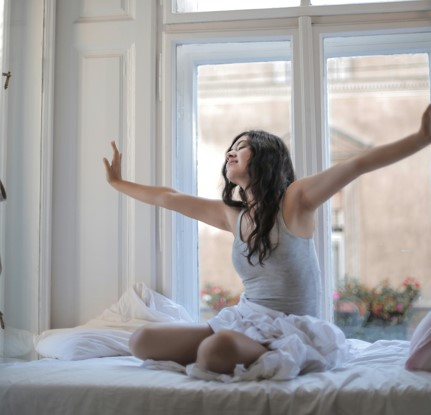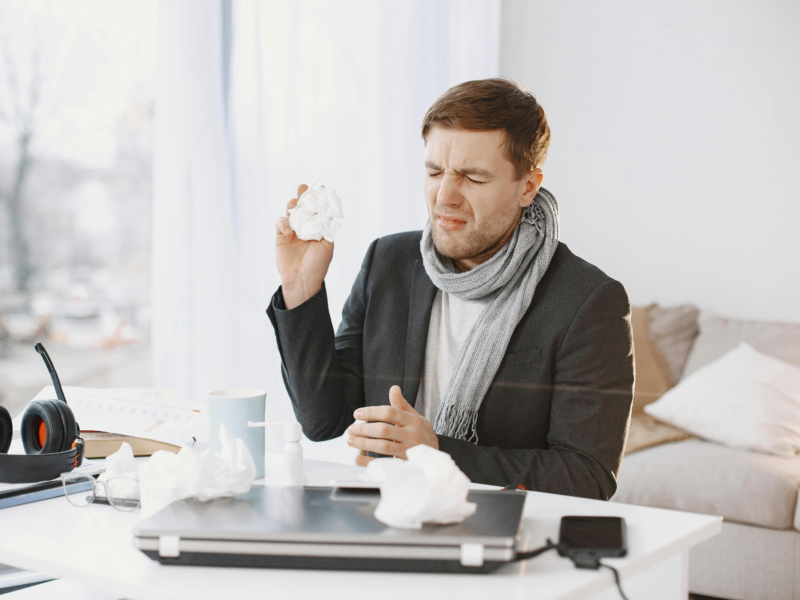🌙 Introduction: Why Sleep Is the Missing Link in Eye Health
We often talk about screen time, nutrition, and blue light — but one of the most overlooked factors in eye health is sleep. Your eyes, just like your muscles, need rest to regenerate and repair.
Yet, in our digital-first era, late-night scrolling, work deadlines, and artificial lighting disrupt the body’s natural rhythm — leaving millions to wake up with dry, tired, and blurry eyes.
Poor sleep doesn’t just make you feel groggy — it can lead to chronic eye strain, blurred vision, reduced tear production, and even worsen conditions like glaucoma or dry eye syndrome.
In this comprehensive guide, we’ll explore how sleep affects your eyes, what happens when you don’t get enough of it, and practical strategies to improve both your sleep quality and visual performance.
🧬 The Science Behind Sleep and Vision
During sleep, your eyes undergo a restoration phase. The corneal cells are repaired, tear film is replenished, and oxidative stress accumulated during the day is reduced.
Lack of sleep interferes with this process, which can lead to redness, twitching, spasms, or inflammation in ocular tissues.
Research published in Investigative Ophthalmology & Visual Science shows that REM sleep is particularly important for visual processing — it helps the brain integrate and “reset” visual input. Chronic sleep deprivation interferes with this process, leading to delayed visual responses and difficulty focusing.
💤 What Happens to Your Eyes When You Don’t Sleep Enough
When you get less than 6 hours of sleep consistently, your eyes can’t fully recover. You may experience:
- Dry eyes – reduced tear secretion leads to discomfort.
- Eye twitching (myokymia) – caused by fatigue and nerve overstimulation.
- Blurry or double vision – due to poor focus control.
- Light sensitivity – from corneal strain and unbalanced tear film.
- Under-eye puffiness and dark circles – impaired blood flow and fluid retention.
In severe cases, chronic sleep deprivation may contribute to optic nerve damage and increase the risk of glaucoma due to elevated intraocular pressure at night.

🌙 The Role of Melatonin in Visual Health
Melatonin is the “sleep hormone,” but it also plays a direct role in retinal protection.
The retina contains melatonin receptors that regulate light adaptation and antioxidant activity.
When your melatonin rhythm is disrupted by late-night screen exposure or blue light, the retina remains in a state of overstimulation, which leads to oxidative stress and accelerated aging of retinal cells.
💡 Tip: Use night filters, blue-light glasses, or apps like f.lux or Night Shift to reduce melatonin suppression after sunset.
Did You Know?
- People who sleep fewer than 6 hours a night are 40% more likely to experience chronic eye strain.
- Melatonin production peaks between 10 PM and 2 AM — the best time for natural eye repair.
- Just two nights of poor sleep can reduce tear production by 50%.
🔵 Blue Light, Sleep, and Digital Fatigue
Blue light from phones, tablets, and monitors is one of the main disruptors of the circadian rhythm. Exposure after 9 PM can suppress melatonin by up to 80%, delaying sleep and increasing the likelihood of eye strain the next day.
Symptoms include:
- Difficulty falling asleep
- Morning headaches
- Eye fatigue
- Blurred vision
The best approach is to adopt a digital sunset rule: avoid screens for at least one hour before bed.
If you must use devices, activate Night Mode, or wear blue light blocking glasses.
👁️ Common Vision Problems Caused by Poor Sleep
- Dry Eye Syndrome — inadequate tear film regeneration.
- Eye Twitching (Fatigue Myokymia) — caused by sleep deprivation and caffeine.
- Dark Circles and Puffiness — disrupted blood circulation.
- Blurry Vision — due to temporary corneal swelling.
- Increased Light Sensitivity — from retinal overexposure.
- Delayed Focus Adjustment — tired eye muscles struggle to refocus between distances.
🌿 Practical Tips to Improve Sleep and Protect Your Eyes
- Keep a consistent sleep schedule (7–8 hours minimum).
- Limit caffeine and alcohol after 4 PM.
- Use warm, ambient lighting in the evening.
- Avoid screens 1 hour before bed.
- Try relaxation techniques (deep breathing, meditation, reading).
- Use artificial tears if you wake up with dry eyes.
- Sleep in a dark, cool room — complete darkness promotes melatonin release.
Related Articles
🕯️ Evening Routine for Eye Recovery
Your bedtime routine can make or break your visual health.
Try this nightly ritual:
- Eye Warm Compress (5 mins): relaxes muscles and increases tear flow.
- 20-20-20 Rule Check: end screen work by shifting focus to distant objects.
- Eye Massage: gentle circular motion around temples and eyebrows.
- Hydration: drink a glass of water before bed.
- Dark Mode: set your phone brightness to minimum or airplane mode.
🥦 Nutrition That Supports Sleep and Eye Function
Foods rich in magnesium, tryptophan, vitamin B6, and omega-3s enhance sleep quality and eye health simultaneously.
Top choices include:
- Spinach & Kale (lutein and magnesium)
- Almonds & Walnuts (melatonin and magnesium)
- Salmon (omega-3 for dry eyes)
- Kiwi (natural sleep aid)
- Chamomile tea (relaxing antioxidant)
🧘♀️ Eye Exercises Before Bed
- Palming: rub palms and cover eyes for 1–2 minutes to relax ocular nerves.
- Blinking Exercise: close eyes slowly 10–15 times to moisten the cornea.
- Focus Shifting: alternate focus between a near object (book) and distant point.
- Circular Eye Movements: gently roll eyes clockwise and counterclockwise.
These simple exercises improve circulation and reduce digital fatigue before sleep.
❓ Frequently Asked Questions
Q1: Can lack of sleep cause permanent vision problems?
A: While short-term fatigue won’t cause blindness, chronic sleep deprivation may worsen existing conditions like dry eye or glaucoma.
Q2: How much sleep do eyes need to recover?
A: Ideally 7–8 hours per night, with consistent circadian rhythm.
Q3: Does sleeping position affect eye pressure?
A: Yes, sleeping face-down or on one side can raise intraocular pressure, which is risky for glaucoma patients.
Q4: Are naps good for the eyes?
A: Short naps (20–30 minutes) can help relax ocular muscles and reduce fatigue.
🧩 Key Takeaway
Your eyes don’t just see — they also rest, recover, and heal while you sleep.
Protecting your vision means respecting your body’s natural rhythm:
🌙 prioritize 7–8 hours of rest,
💡 reduce blue light at night,
🥦 nourish your body with eye-healthy foods, and
🧘 practice gentle relaxation before bed.
Healthy sleep = Healthy eyes = Clear vision for life.



